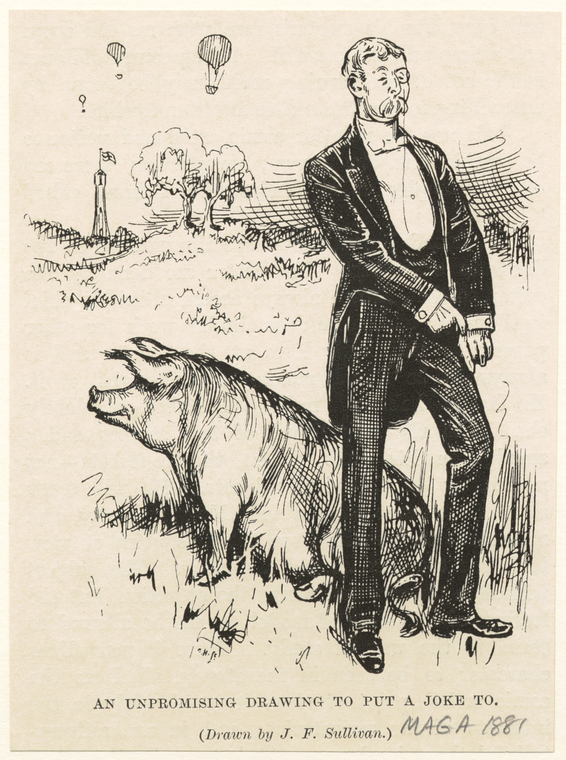 |
| "An Unpromising Drawing To Put a Joke To." From: New York Public Library Picture Collection Online |
In the 18th century before the Revolution, colonies would occasionally circulate fixed amounts of paper money. One of several ways that this could be done would be the exchange of paper money with landowners as a loan with the land serving as collateral. Having paper money made it easier for taxpayers to pay their taxes, debtors to pay their creditors, and generally exchange goods with one another. If you had only large value assets, then paper money could enable you to make small scale transactions for your necessities. But paper money was always accompanied by a fear among wealthy creditors of it becoming depreciated--and being forced to accept depreciated money from their debtors.
On the other hand, if a creditor sued a debtor for collection when paper money was scarce, a debtor's property would be auctioned off or transferred to the creditor at depreciated values. The reason for this was that an auction of debtor assets occurring in a situation of cash scarcity meant that there would be few bidders; and fewer bidders meant that the final bid would be for a lower amount. Consequently, it required more valuable assets to pay off a creditor when money was scarce. This explains Roger Plowman's assertion that without paper money, people would have to surrender "up their lands for one half of what they are worth." A wealthy creditor could get lots of money or valuable assets at bargain basement prices in a money-starved economy. Roger Plowman, of course, knew these facts well. He or his acquaintances must have been the pigs who were starved in order to grease the fat sow's (creditor) arse!
No comments:
Post a Comment